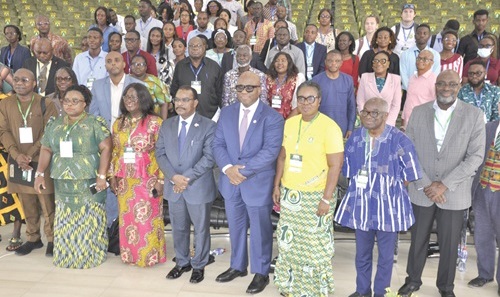The Chief Executive Officer (CEO) of the National Health Insurance Authority (NHIA), Dr Victor Asare Bampoe, has urged the management of health service establishments to embrace innovation and capacity building to address emerging challenges in their domain to move service delivery to greater heights.
Dr Bampoe said this at the opening of the 2025 University of Health and Allied Sciences (UHAS) Research Conference at Sokode-Lokoe, near Ho, in the Volta Region.
The three-day event was on the theme: Global Health Resilience – Emerging Threats, Policy Impacts and Sustainable Solutions.
Health researchers from 11 African countries and participants from the United Kingdom, USA and Switzerland took part in the conference, which also featured a symposium on ‘The Politics of Global Health – Policies, Aid and Power Dynamics’.
Dr Bampoe pointed out that with the rising complexities of emerging health challenges across the globe, there was a need to establish preparedness as the yardstick for quality health research and solutions.
“This is necessary to proactively strengthen systems in the sector, rather than reactively manage a crisis,” he explained.
Earlier, the Executive Director of the Global Health European and Developing Countries Clinical Trials Partnership 3, in Brussels, Dr Michael Makanga, said the COVID-19 pandemic revealed both the fragility and potential of global clinical trial systems.
That, he said, was evident in the rising frequency and difficulty in rising biological and non-biological health threats.
Paradigm shift
On preparedness, he said, a major paradigm shift was required to establish an effective infrastructure and common frameworks for that purpose.
In that regard, Dr Makanga said diversity financing, regarding domestic resource mobilisation, innovative financing, as well as innovative financing instruments and building contingency funds, would be steps in the right direction.
The Vice Chancellor of UHAS, Professor Lydia Aziato, said mental health issues were very important to the university, which attached great importance to service to the community, saying that it required a uniquely resilient health system to address, she added.
Professor Aziato said a multilingual approach was needed to team up with neighbouring countries to smoothly tackle various emerging regional and global health thr

